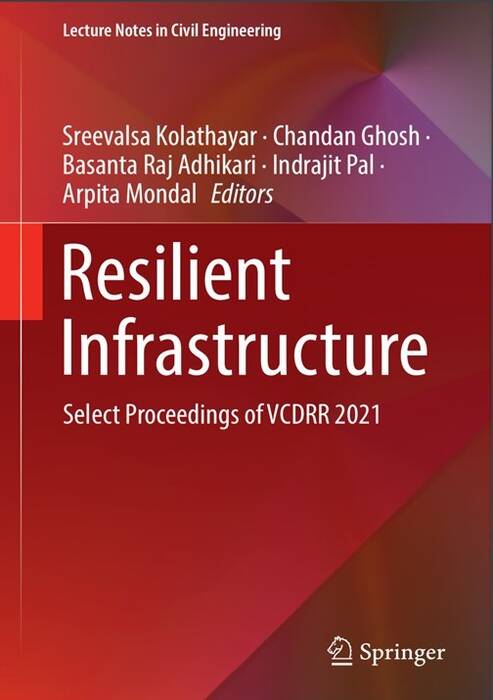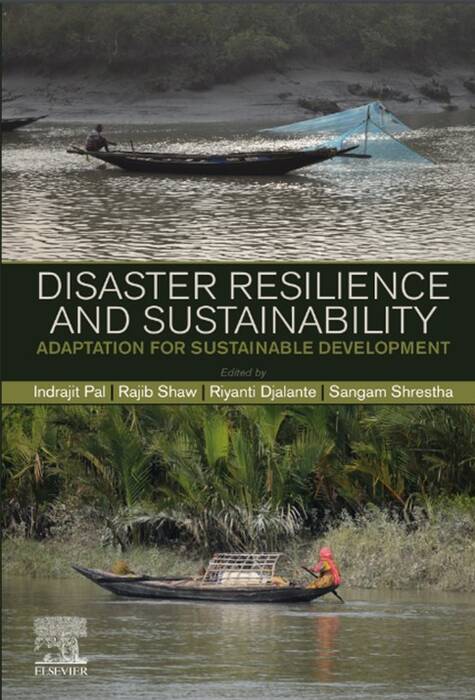
Disaster Resilience and Sustainability
Adaptation for Sustainable Development
Indrajit Pal · Rajib Shaw · Riyanti Djalante · Sangam Shrestha
Disasters undermine societal well-being, causing loss of lives and damage to social and economic infrastructures. Disaster resilience is central to achieving the 2030 Sustainable Development Goals, especially in regions where extreme inequality combines with the increasing frequency and intensity of natural disasters.
Disaster risk reduction and resilience requires participation of wide array of stakeholders ranging from academicians to policy makers to disaster managers. Disaster Resilient Cities: Adaptation for Sustainable Development offers evidence-based, problem-solving techniques from social, natural, engineering and other disciplinary perspectives. It connects data, research, conceptual work with practical cases on disaster risk management, capturing the multi-sectoral aspects of disaster resilience, adaptation strategy and sustainability. The book links disaster risk management with sustainable development under a common umbrella, showing that effective disaster resilience strategies and practices lead to achieving broader sustainable development goals.
ISBN: 978-0-323-85195-4
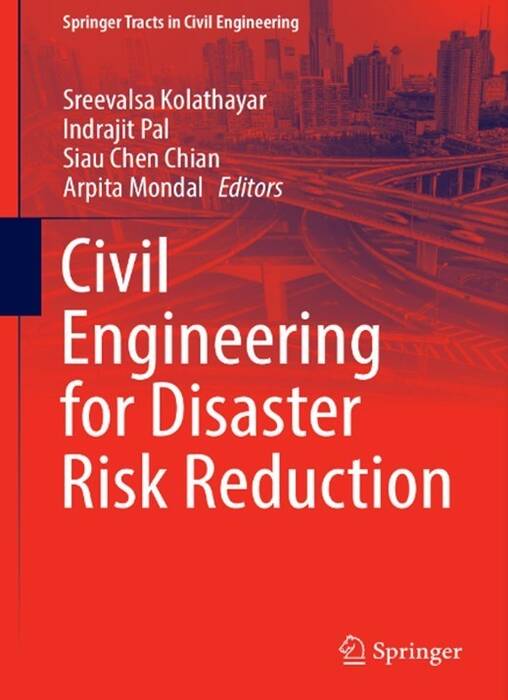
Springer Tracts in Civil Engineering
Sreevalsa Kolathayar · Indrajit Pal · Siau Chen Chian · Arpita Mondal
Civil Engineering for Disaster Risk Reduction
The book is a comprehensive volume on multi-hazards and their management for a sustainable built environment. It focuses on the role of civil engineering in building disaster resilient society. This book brings together all diverse disciplines of civil engineering and related areas (for example, geotechnical engineering, water resources engineering, structural engineering, transportation engineering, environmental engineering, construction management, GIS, and remote sensing) towards a common goal of disaster resilience through an interdisciplinary approach. It contains methods and case studies focusing on civil engineering solutions to reduce the disaster risk. The book contents are aligned in line with the priorities set by the UN-Sendai Framework for Disaster Risk Reduction and UN-SDGs to promote a global culture of risk-awareness and disaster reduction. The book will be a useful comprehensive reference for disaster risk reduction beneficial for engineering students, teaching faculty, researchers, industry professionals and policymakers.
ISBN: 978-981-16-5311-7
DOI: https://doi.org/10.1007/978-981-16-5312-4
Lecture Notes in Civil Engineering
Sreevalsa Kolathayar · Chandan Ghosh · Basanta Raj Adhikari · Indrajit Pal · Arpita Mondal
Resilient Infrastructure
Select Proceedings of VCDRR 2021
This book presents the select proceedings of the Virtual Conference on Disaster Risk Reduction (VCDRR 2021). This book discusses various relevant topics such as Disaster resilience and Infrastructure, Risk reduction and structural measures, Evidence based approach for DRR Case studies, Numerical modeling and Construction methods, Prevention Methods and Safety Engineering, Cross cutting issue in DRR and Infrastructure etc. The book is also a comprehensive volume on multi-hazards and their management for a sustainable built environment. This book will be useful for academicians, research scholars and industry professionals working in the area of civil engineering and disaster management.
ISBN: 978-981-16-6977-4
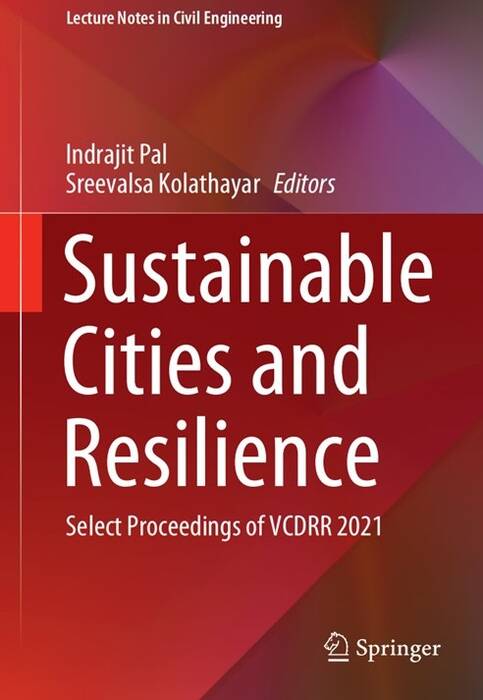
Lecture Notes in Civil Engineering
Indrajit Pal · Sreevalsa Kolathayar
Sustainable Cities and Resilience
Select Proceedings of VCDRR 2021
This book presents the select proceedings of the Virtual Conference on Disaster Risk Reduction (VCDRR 2021). It provides insights on urban resilience and sustainable infrastructure. All the chapters in this volume are segregated into five clusters, e.g., Resilient infrastructure in construction, Innovative construction interventions, Waste Management and Disaster Risk Reduction, Urban Development and Sustainability, and Cross-cutting issues. Various topics covered in this book are risk assessment, prevention, mitigation, preparedness and response, renewable energy, waste management, resilient cities, and environmental management. This book is a comprehensive volume on disaster risk reduction (DRR) and its management for a sustainable built environment. This book will be useful for the students, researchers, policy makers and professionals working in the area of civil engineering, especially disaster management.
ISBN: 978-981-16-5542-5
DOI: https://doi.org/10.1007/978-981-16-5543-2
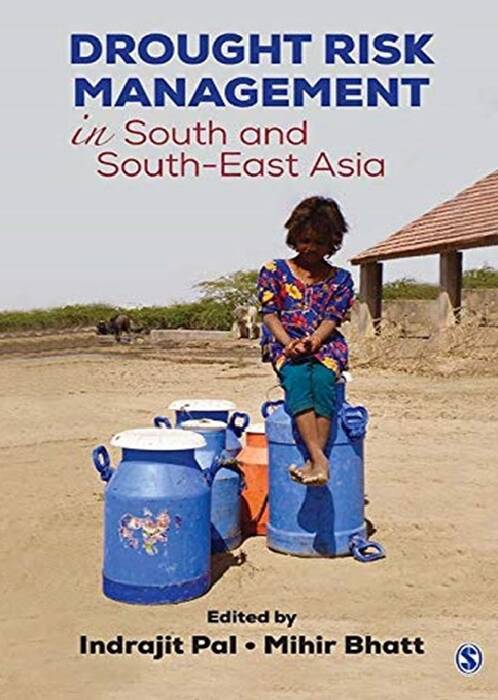
Drought Risk Management in South and South-East Asia
Indrajit Pal · Mihir Bhatt
The geo-climatic conditions of South and South-East Asian countries are diverse and vulnerable to multiple natural hazards such as drought. Drought evolves over months or even years, affects a large spatial extent and causes enormous damages. Drought Risk Management in South and South-East Asia is a comprehensive reference on overall perspectives and scenarios on drought risk mitigation and management, based on research and case studies from South and South-East Asian countries. Drought management is a complex area of work that requires active and continuous participation of the national, provincial and local governments, multiple ministries, and divisions. This book demonstrates the best practices of socio-economic and technological interventions to enhance drought risk management, which will help to develop plans and policies, and their implementation to reduce the impact of droughts. It also offers views of field practitioners on impacts of the interventions practiced at the national, sub national and local levels.
ISBN: 978-9353883911
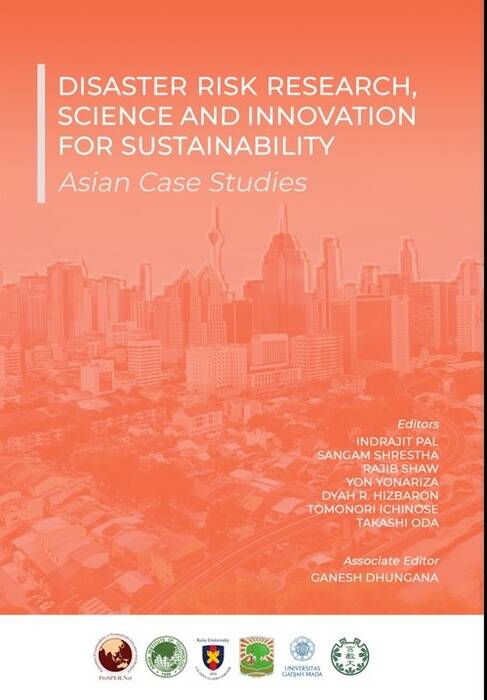
Disaster Risk Research, Science, and Innovation for Sustainability: Asian Case Studies
Indrajit Pal · Sangam Shrestha · Rajib Shaw · Yon Yonariza Dyah R. Hizbaron · Tomonori Ichinose · Takashi Oda
Ganesh Dhungana (Associate Editor)
This book – a compilation of the findings of twenty carefully selected case studies across nine countries in the Asian region – constitutes an admirable effort to advance our understanding about how to improve the efficacy of the measures to reduce disaster-risks. Notwithstanding the diversity of the country settings, the variety of climate-induced risks, and the ambit of risk reduction strategies and practices across the countries, the common message in these case studies points to the centrality of community engagement and recourse to local knowledge, technologies, and wisdom for achieving practicable and enduring redress of disaster risks.
ISBN: 978-616-341-096-2
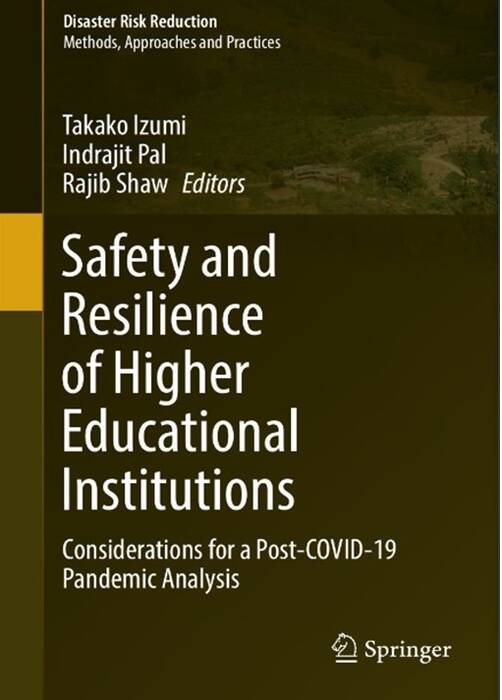
Safety and Resilience of Higher Educational Institutions
Considerations for a Post-COVID-19 Pandemic Analysis
Takako Izumi· Indrajit Pal ·Rajib Shaw ·
Disaster risk reduction is a process that leads to the safety of communities and nations. After the 2005 World Conference on Disaster Reduction, held in Kobe, Japan, the Hyogo Framework for Action (HFA) was adopted as a framework for risk reduction. The academic research and higher education in disaster risk reduction has made, and continues to make, a gradual shift from pure basic research to applied, implementation-oriented research. More emphasis is being given to multi-stakeholder collaboration and multi-disciplinary research. Emerging university networks in Asia, Europe, Africa, and the Americas have urged process-oriented research in the disaster risk reduction field. With this in mind, this new series will promote the output of action research on disaster risk reduction, which will be useful for a wide range of stakeholders including academicians, professionals, practitioners, and students and researchers in related fields. The series will focus on emerging needs in the risk reduction field, starting from climate change adaptation, urban ecosystem, coastal risk reduction, education for sustainable development, community-based practices, risk communication, and human security, among other areas. Through academic review, this series will encourage young researchers and practitioners to analyze field practices and link them to theory and policies with logic, data, and evidence. In this way, the series will emphasize evidence-based risk reduction methods, approaches, and practices.
ISBN: 978-981-19-1192-7
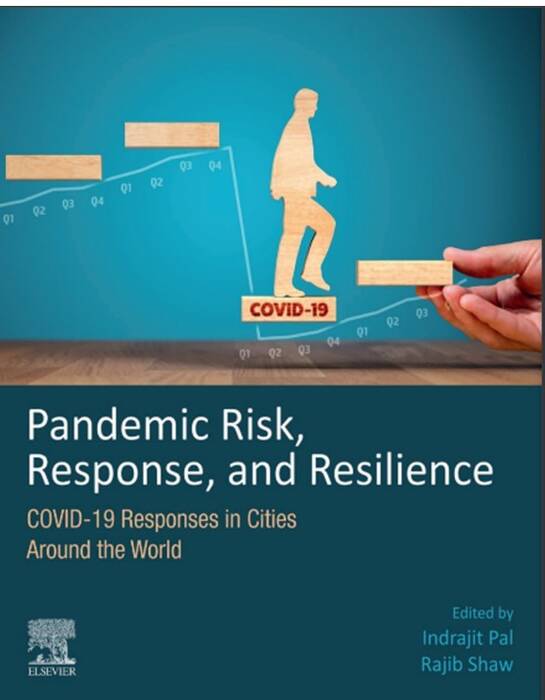
Pandemic Risk, Response, and Resilience COVID-19 Responses in Cities Around the World
Indrajit Pal ·Rajib Shaw ·
Pandemic Risk, Response, and Resilience: COVID-19 Responses in Cities Around the World examines the pandemic’s global impacts on public health, economies, society and labor. The book shows how COVID-19 intensified natural and anthropogenic hazards and destroyed years of communities, governments and the work of development organizations and their investments. It focuses on how disaster resilience is central to achieving the 2030 Sustainable Development Goals in a post-COVID-19 era. Sections cover current governance practices, with special attention given to Asia’s more successful responses. It shows how the various sectors across that society were most impacted by COVID-19, including tourism and food systems. This book is an essential reference for researchers and practitioners who need to understand response, preparedness and future pathways for pandemic resilience.
ISBN: 9780323992770
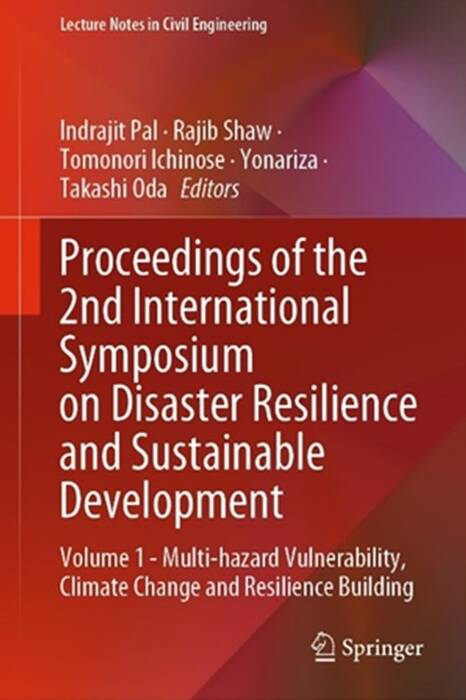
Proceedings of the 2nd International Symposium on Disaster Resilience and Sustainable Development
Volume 1 – Disaster Risk Science and Technology
Indrajit Pal · Sreevalsa Kolathayar · Sheikh Tawhidul Islam · Anirban Mukhopadhyay · Iftekar Ahmed ·
This, conference proceeding, book contains invited articles and contributory papers from the 2nd International Symposium on Disaster Resilience and Sustainable Development, organized by Asian Institute of Technology, Thailand, on June 24–25, 2021. It includes contributions from researchers and practitioners working in the area of disaster mitigation and risk reduction for sustainable communities. The articles cover the topics such as on tools and techniques of hazard identifications, risk assessment, engineering innovations for hazard mitigation, and safe design of structures to the vulnerable systems. The content caters to research scholars, students, industry professionals, data analytics companies, re-insurance companies, government bodies and policymakers, who work in the field of hazard modeling and disaster management.
ISBN: 978-9811947148
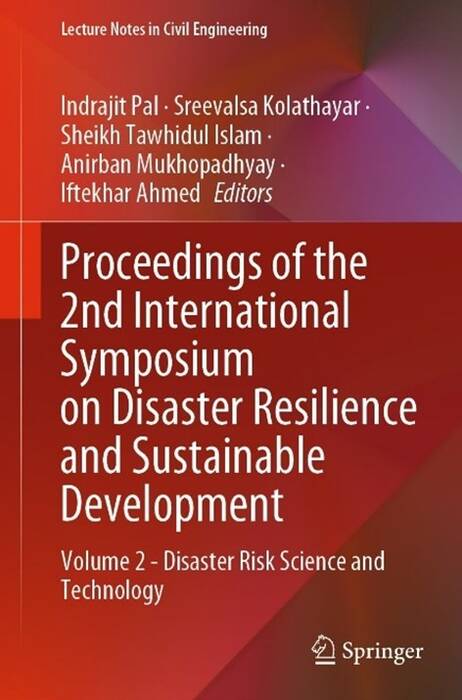
Proceedings of the 2nd International Symposium on Disaster Resilience and Sustainable Development
Volume 2 – Disaster Risk Science and Technology
Indrajit Pal · Sreevalsa Kolathayar · Sheikh Tawhidul Islam · Anirban Mukhopadhyay · Iftekar Ahmed
This, conference proceeding, book contains invited articles and contributory papers from the 2nd International Symposium on Disaster Resilience and Sustainable Development, organized by Asian Institute of Technology, Thailand, on June 24–25, 2021. It includes contributions from researchers and practitioners working in the area of disaster mitigation and risk reduction for sustainable communities. The articles cover the topics such as on tools and techniques of hazard identifications, risk assessment, engineering innovations for hazard mitigation, and safe design of structures to the vulnerable systems. The content caters to research scholars, students, industry professionals, data analytics companies, re-insurance companies, government bodies and policymakers, who work in the field of hazard modeling and disaster management.
ISBN: 978-981-19-6296-7
